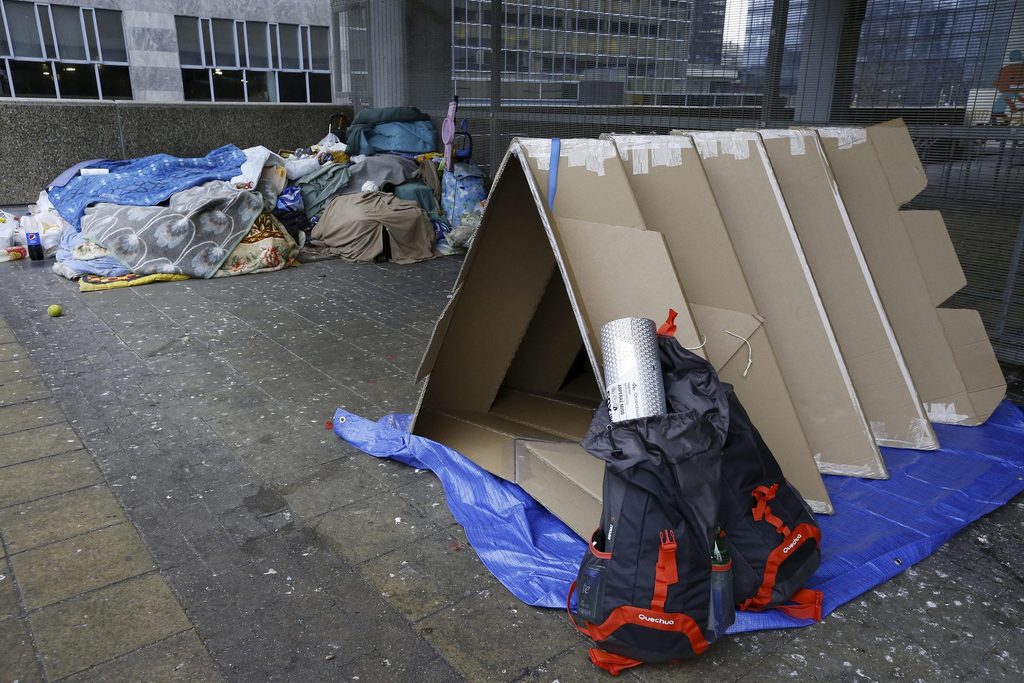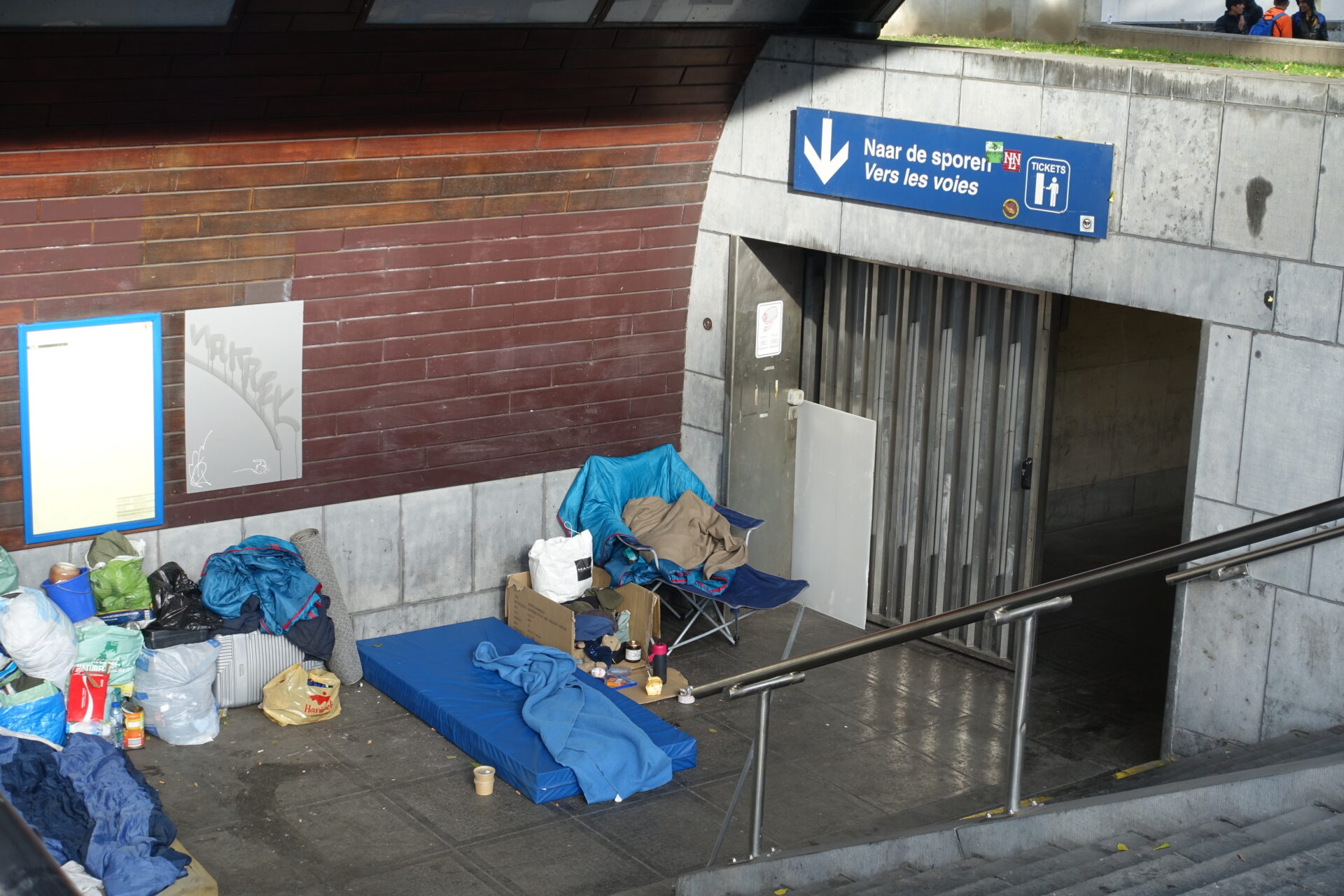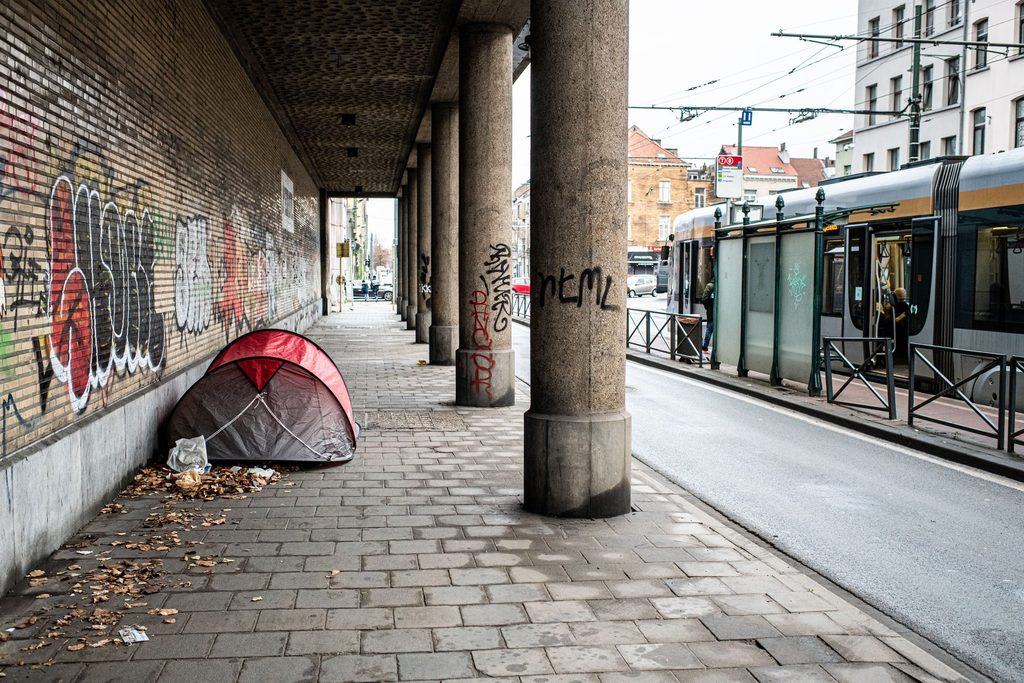The scale of homelessness and people excluded from housing in Belgium is comparable to that of neighbouring countries, but the situation in the Brussels-Capital Region continues to worsen, causing widespread concern.
A recent study by the European Federation of Homeless Organisations (Feantsa) and the French Fondation Abbé Pierre found that at least 895,000 people are homeless or are living in emergency shelters in the EU and the UK. This is an increase of 200,000 compared to 2019, when the last analysis was carried out, and "testifies to the failure of European countries to make housing a fundamental right."
However, the data only reflects the most visible forms of homelessness, as the various national counts of homelessness largely vary, meaning the actual figure is likely much higher.
The Belgian Constitution guarantees "the right to live life in accordance with human dignity", yet 15.7% of the population lived in inadequate housing in 2019, while more than 257,000 people were on a waiting list for social housing in 2022.

Homeless camp at Brussels North Station, Friday 29 December 2017. Credit: Belga / Nicolas Maeterlinck
Nicolas Horvat, External Researcher responsible for the coordination of the report, stressed that Belgium is one of the few European countries where the vast majority of situations of housing exclusion, from people sleeping rough to homeless people living temporarily with relatives, are covered by surveys. Because the coverage includes the hidden forms of homelessness, the figures are higher than in other countries.
"Taking this into account, we can reasonably affirm that the scale of homelessness in Belgium is comparable to that of its direct European neighbours, such as Germany, France and the Netherlands," he said.
Proportionately high
Horvat did note that the number of people in precarious housing situations in Brussels specifically is much higher than in other regions. "Homelessness and poor housing are proportionately very high in Brussels, and the situation is getting worse in the long-term," he told The Brussels Times.
At the end of 2022, Bruss'help, the umbrella organisation responsible for homeless people in Brussels, reported that homelessness in the Belgian capital increased significantly. A total of 7,134 people were recorded as being homeless or finding themselves in precarious housing situations (at risk of eviction or being temporarily housed with third parties).
This is again considered an underestimate of the actual situation as multiple categories of people remain difficult to count. Across all categories, an increase of almost 20% was recorded compared to 2020.

Asylum seekers' shelter near the Federal Immigration Services building, October 2022. Credit: Lauren Walker
Horvat warned that it is very difficult to predict what the situation will be like this winter, but that it does not look promising. "Based on the evolution of the phenomenon, and taking into account the repercussions of the successive economic and social crises, there is a strong probability that many people will fall into a situation of poor housing," he said.
When questioned on the recent decision to temporarily stop providing single men with shelter, he noted that, if the measure is actually applied, it risks making the situation even worse. "We are going to have to find places in emergency accommodation for all these people if the policymakers don't want to see an explosion in the number of people who will become rough sleepers."
Paradigm shift needed
Horvat also criticised the fact that, when it comes to the increasing feeling of insecurity in several neighbourhoods, such as around Brussels-Midi station, people often blame homeless people.
"Asserting that there is a direct link between this increase in violence and homelessness seems, if not a cruel lack of intellectual rigour, at least a dubious shortcut," he said. "What is certain, however, is that the extreme conditions in which rough sleepers live around Brussels' major railway stations are unacceptable."
He added that it is worth taking any possible measures to support, accommodate or provide housing for these people, referring to the solutions detailed in the Feantsa report. "The main problem with homeless policies is that none of the existing regional policies or strategies in Belgium really make the paradigm shift to housing-led and housing-first policies, and therefore struggle to make progress towards ending homelessness."
Related News
- Belgium presents Winter Plan: Extra shelter via campsites, youth hostels and containers
- 'Inevitable dire consequences': Brussels calls on Belgium to provide shelter solution
For example, Finland, one of the few countries that has seen the number of homeless people decline, invests heavily in housing production and applies the 'Housing First' principle of providing permanent housing to homeless people as soon as possible.
"However, scaling Housing First is a stated objective, such as massive investment in the construction and renovation of social housing, and in Belgium, the necessary financial resources do not follow and therefore the main answer to homelessness remains shelter," Horvat explained.

